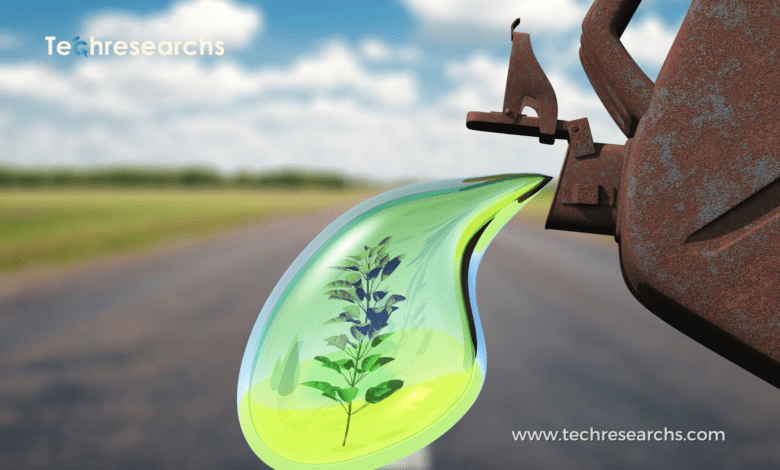Biofuels and Sustainability: Navigating the Green Horizon


Biofuels and sustainability: As the world grapples with the urgency of climate change, the quest for sustainable alternatives to fossil fuels intensifies.
In this pursuit, biofuels have emerged as a promising contender, offering the potential to decarbonize transportation and other sectors.
But are biofuels and sustainability truly hand-in-hand? Let’s delve into the complexities of this dynamic duo, exploring the opportunities and challenges that lie ahead.
What are Biofuels?
Simply put, biofuels are liquid or gaseous fuels derived from organic matter, primarily plant-based resources like algae, corn, sugarcane, and jatropha.
Unlike fossil fuels formed over millions of years, biofuels are renewable, produced through biological processes like photosynthesis.
This fundamental difference offers a glimmer of hope in the fight against climate change, as biofuels and sustainability are inherently linked.
Benefits of Biofuels:
Reduced Greenhouse Gas Emissions: Compared to fossil fuels, biofuels and sustainability go hand-in-hand through lower greenhouse gas emissions.
While burning biofuels releases emissions, plants used in their production absorb carbon dioxide from the atmosphere during growth, creating a partial carbon cycle.
Studies suggest that certain biofuels can reduce greenhouse gas emissions by up to 80% compared to gasoline.
Enhanced Energy Security: Reliance on fossil fuels from a limited number of countries often leads to geopolitical instability.
Biofuels and sustainability can promote energy independence by utilizing locally sourced agricultural resources, diversifying energy supply and reducing dependence on foreign oil.
Economic Opportunities: The biofuel industry holds vast potential for economic growth, creating jobs in farming, processing, and distribution.
This can revitalize rural communities and contribute to overall economic development, making biofuels and sustainability mutually beneficial.
Challenges of Biofuels:
Despite their promising potential, biofuels and sustainability face significant challenges that need to be addressed for their widespread adoption:
Land-Use Change: Large-scale biofuel production could lead to deforestation and ecosystem degradation if not managed sustainably. Monoculture farming practices associated with some biofuels can deplete soil nutrients and reduce biodiversity. Striking a balance between biofuels and sustainability requires responsible land-use management.
Food Security Concerns: Diverting agricultural land towards biofuel production could potentially impact food security, especially in regions with limited resources. Finding efficient ways to produce biofuels and sustainability without compromising food availability is crucial.
Technological Improvements: While some biofuels like ethanol are commercially viable, others like cellulosic ethanol derived from non-food crops are still under development. Continued research and development are necessary to improve the efficiency and affordability of various biofuel technologies to make biofuels and sustainability a truly viable option.
The Road Ahead: Biofuels and sustainability
The future of biofuels and sustainability is far from set. By addressing the challenges, promoting responsible production practices, and investing in innovative technology, biofuels can become a key player in the transition to a low-carbon future.
Here are some key steps towards a sustainable biofuel future:
Developing advanced biofuels: Research into next-generation biofuels derived from algae, waste biomass, and other non-food sources is crucial to minimize land-use change and food security concerns.
Implementing stringent sustainability standards: Rigorous certification schemes like the Roundtable on Sustainable Biofuels (RSB) can ensure responsible sourcing, production, and distribution of biofuels, making them truly aligned with biofuels and sustainability.
Promoting consumer awareness: Educating consumers about the benefits and challenges of biofuels can encourage informed choices and support sustainable practices.
Learn more about Sustainable Biotechnology: Shaping the Future of Medicine and Beyond
Conclusion:
Biofuels and sustainability present a complex yet promising path towards a greener future. While not without challenges, the potential benefits of biofuels cannot be ignored.
By embracing responsible practices, technological advancements, and a commitment to environmental stewardship, we can unlock the true potential of biofuels and sustainability to power a cleaner and more equitable world.
Remember, the journey towards a sustainable future is paved with collaboration, innovation, and a shared vision for a healthier planet. Let’s join hands to ensure that biofuels and sustainability become a reality, not just a hopeful dream.



